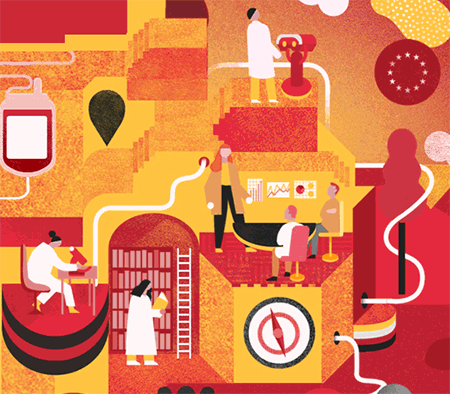1 Contribute to the availability, quality, resilience, safety, and cost-effectiveness of the blood supply
EBA members are stronger together.
Acting as a combined collaborative force, EBA members work together to maintain and improve the availability, quality, resilience, safety, and cost-effectiveness of the blood supply in Europe.
The donors and patients of Europe benefit from this efficient and strong collaboration amongst European blood services, which will continue to be developed and maintained by EBA.
Donor health
Ensuring the well-being of the donor in connection to donation is a prime task for blood services. The European Blood Alliance will continue to support members by:
- Facilitating best practice in the selection and protection of donors to ensure a stable and healthy donor base population is developed and maintained.
- Supporting research of donor health and behaviour to ensure safe donation
- Liaising with donor organisations
Patient care
Providing safe blood products to all patients who need these as therapies is the core of the EBA’s members business. As patient care and wellbeing is the ultimate goal of all EBA members’ operations, EBA will support members provision of high-quality blood products by:
- Facilitating the continued best practice of members in the efficient mitigation of risks, validation of manufacturing processes, accurate characterisation of products that match the recipient needs, and careful patient monitoring.
- Continuing to maintain close contact with patient organisations to ensure their needs are understood and considered.
- Supporting members’ evolving activities and innovation, including the development of ATMPs and other SoHO deriving from blood.



